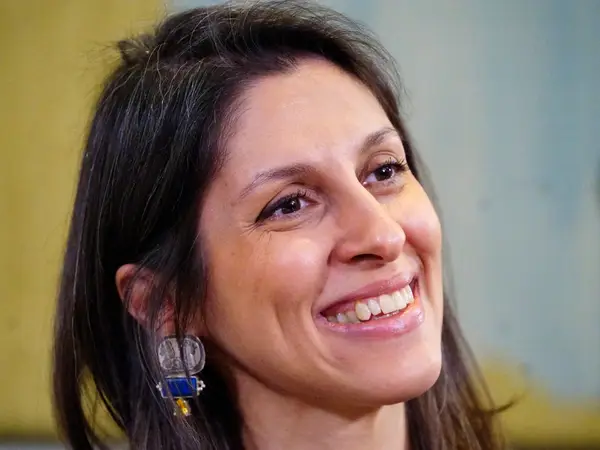British Iranian Nazanin Zaghari-Ratcliffe says she saw five foreign secretaries change during six years of her detention in Iran without a deal to free her.
"That is unprecedented given the politics of the UK…What's happened now should have happened six years ago. I shouldn't have been in prison for six years," Zaghari-Ratcliffe said at a press conference in Westminster Monday, days after she regained her freedom.
Zaghari-Ratcliffe's MP Tulip Siddiq said she would be calling for a review by the Foreign Affairs Select Committee of the British parliament to investigate the delay in her release.
She was freed after the UK paid a four-decade-old £400m ($522 million) debt to Iran. Iranian state media in 2021 cited unidentified Iranian officials as saying that the British-Iranian aid worker would be freed once the debt had been paid. Iran's foreign minister Hossein Amir-Abdollahian last week claimed that the payment by Britain had nothing to do with the release of the Zaghari-Ratcliffe and Anoosheh Ashoori.
At the press conference she pointed out that "justice in Iran does not have any meaning" and apparently referring to Iran's negotiations with world powers over its nuclear issue, said that the freedom of dual nationals "should not be linked to international agreements."
Zaghari-Ratcliffe disclosed that soon after her arrest Iranian interrogators told her that she will be freed when the UK pays the money.
Following her release, Iran’s hardliner media continued to accuse her and other British- Iranian detainees of spying and highlighted that Tehran got paid to free them.
Recalling her experience in detention, she said it would always "haunt" her but declined to speak about her ordeal in solitary confinement, presumably due to the presence of her seven-year-old daughter Gabriella at the press conference.
The British Foreign Secretary Liz Truss claimed credit for negotiating a furlough for British-American-Iranian wildlife conservationist Morad Tahbaz, along with the release of Nazanin Zaghari-Ratcliffe and Anoosheh Ashoori.
"The world should come together to help other prisoners," she said, referring to other dual nationals still held in Iran including Tahbaz.
Morad Tahbaz, 66, was released from prison on furlough on the same day Zaghari-Ratcliffe and Ashoori left Iran to return to Britain.
Tahbaz's daughter, Roxanne, said Monday he had been taken back to prison two days after being released on furlough. She was in the press conference by the invitation of Zaghari-Ratcliffe and read a statement to bring attention to her father's circumstances and the family's plight. The family say he has gone on hunger strike.
“It’s been over four years now since my father was detained and my mother was put on a travel ban in Iran,” his daughter told the press conference Monday. "I’m here today to ask the question of why my father is the only UK-born national who has been abandoned and left behind there.”
Tahbaz's family fear he may fall through the diplomatic cracks with his triple nationality.
"He did not think that the UK government would abandon him. He was born in the UK," a family member who asked not to be identified told the BBC.
Tahbaz was arrested during a crackdown on environmental activists in January 2018.
There were contradictory statements on Monday whether he was taken to a “residential place” or was still in prison.
There are two more British-Iranian citizens still behind bars in Iran, labor rights activist Mehran Raoof and lawyer Shahram Shirkhani both of whom are serving ten years in jail for alleged spying.
Iran is still holding several other western dual nationals including American-Iranians Siyamak Namazi and his elderly father Bagher, American-Iranian businessman Emad Sharghi, and German-Iranian rights activist Nahid Taghavi.
